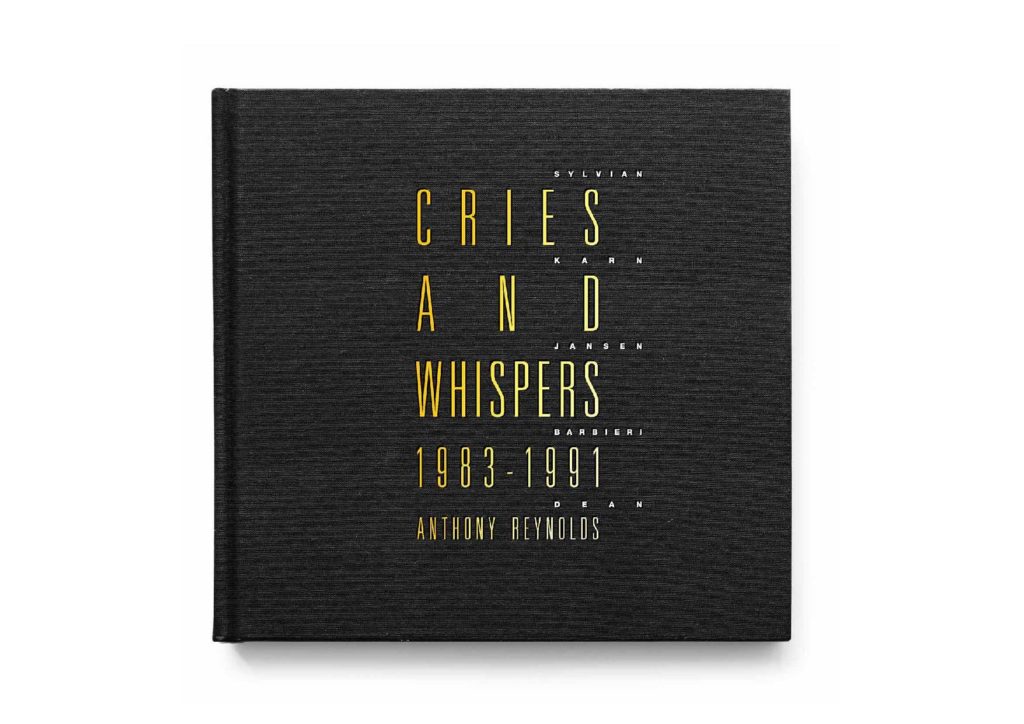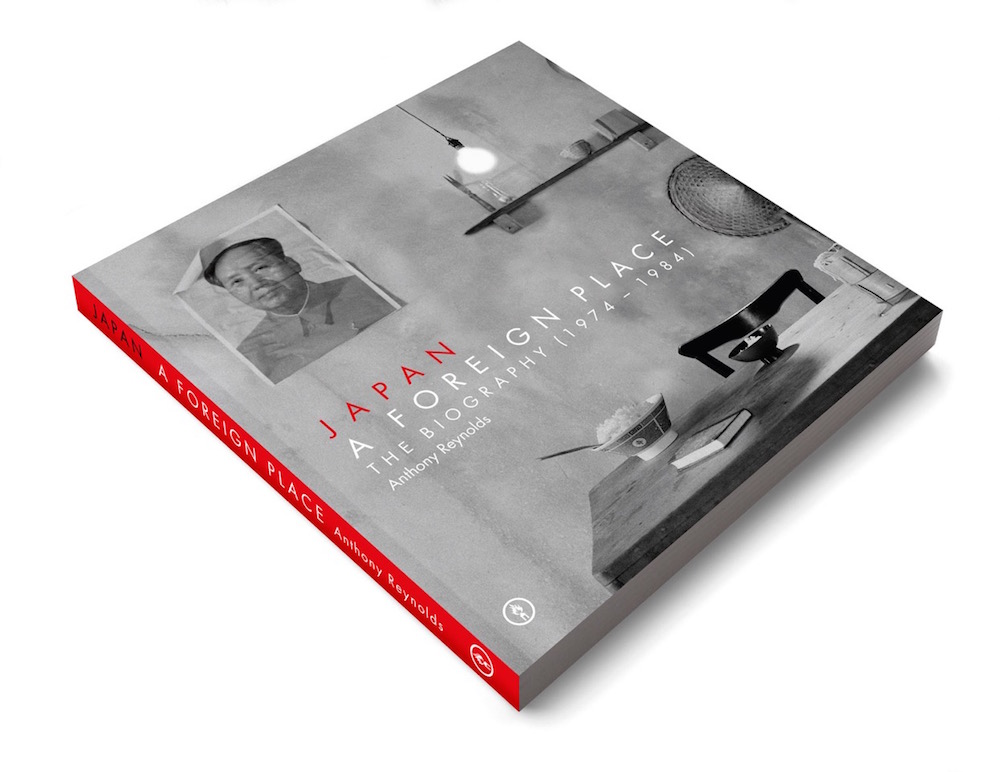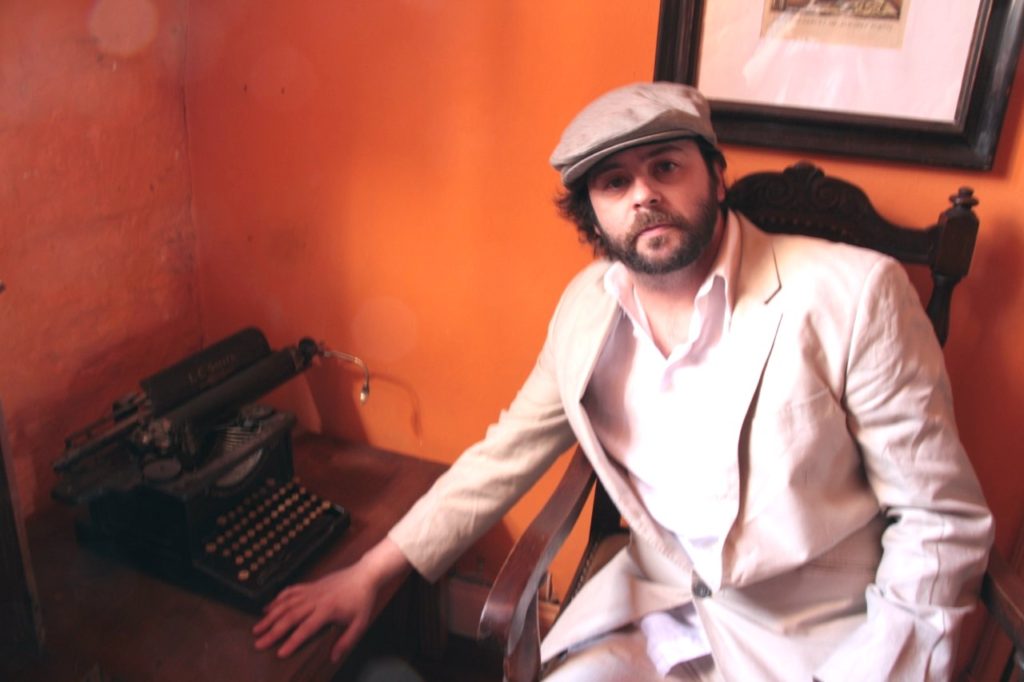Anthony Reynolds’ new book ‘Cries and Whispers’, focuses on the musical adventures of the band members of Japan, from the time following their split in December 1982 until 1991. Jason Barnard speaks to Anthony about this long-awaited biography.
‘A Foreign Place’ was the first in depth study of Japan whilst ‘Cries And Whispers’ covers the post-Japan years. What key insights did you learn from writing both books that would surprise readers?
I learnt a few surprising things that were of a personal nature but not really musical, so they had no place in the book. I didn’t want to stray into gossip.
In fact being such a ‘Japan nerd’ to begin with, there wasn’t much that I found out that was brand new. It was more about getting new details that backed up the known facts.
That said, I realized beyond doubt how utterly unique japan were self taught but with very particular approaches to their roles. Apart from Rob who was by default more of a ‘traditionalist’ (and only then compared to the others) every individual had a very almost perverse approach to their instrument – none went for the obvious. What I’m saying is, the deeper I went, the more beautifully weird Japan became.
Was it the success of ‘A Foreign Place’ that inspired you to continue or did you always have plans to continue their story?
When I finished AFP it just seemed like I’d stopped as Sylvian in particular truly got going. It seemed natural to continue. Just felt right. I didn’t think too much about it.
What do you think marks Japan out as being much more unique than their contemporaries?
What set Japan apart from their contemporaries is their particular insularity and their very ‘purist’ ideals. It’s like they almost had a disdain for success…or to be more accurate what one would traditionally do for it… and at the same time they had many of the qualities that would have ensured the kind of popularity their peers were desperate for. Yet after a certain point japan refused to do Support tours- they were offered big ones in America with Queen and The Police for instance…they seemingly only made videos for singles at random- this despite them being the most photogenic of all groups then…and they never played festivals. They were hermits compared to many groups and yet spent a lot of energy on their appearance. They’d put make up on to go to the studio and program synths for 8 hours but would turn down big parties, social events etc money, awards etc barely came into the equation although they’d come to regret a lack of attention to the former. In short, compared to Duran Duran, Ultravox etc in practice Japan were more akin to a religious sect than a pop band whilst looking like the ultimate pop band. They were genuinely unusual.
Who did you speak to and what resources did you draw on?
When researching books I try to avoid the familiar and easy resources. I tried to talk to as many people who were there as possible. ‘New quotes’ was my philosophy even if they illustrated known points. I also used as many unpublished interviews, got foreign ones translated etc I tried – like Japan- to avoid the obvious.
As ever, some people I wanted to talk to were dead. But other than that I found most people I wanted to talk to. For the first book, anyway.
To those not familiar with the post-Japan years which tracks would you pinpoint from this period as the highlights and why?
Highlights from 83 onward would undoubtedly be Sylvian’s first 3 solo/Vocal albums. I think there are similarities with Scott Walker’s late 60’s output in some regards- when Sylvian ‘worked quickly’ then the quality of the work not only didn’t suffer, it bloomed. The ‘pressure’ of being on a demanding record label actually worked in his favour. Left to his own devices years later he was able to take much more time and I wonder if this is always a good thing in terms of output anyway. No doubt Sylvian himself would disagree but from a listener’s point of view it’s hard to argue with the Golden triptych of Brilliant Trees, Gone to Earth and Secrets of the Beehive. All released within a 4 year period…We hear a pop sensibility tied to an intellect and spirit in full flight.
I also have a huge soft spot for the Dali’s Car album – Mick Karn and Pete Murphy- somehow it sounds neither like Japan nor Bauhaus- a strange, unworldly piece that is nevertheless perversely accessible…it could come from 1884 or 2084.
https://www.youtube.com/watch?v=AnB7QlJudhk
How did David’s writing and recording process evolve over this period?
As a songwriter, arranger and producer Sylvian grew much more confident during this period. He really found his feet. ‘Ghosts’ had proved to everyone – from his peers, to the record label- to himself- that his particular approach was commercially viable as well as being artistically and sonically ‘worthy’. He built on that and the commercial success of Forbidden colours and brilliant trees only confirmed his conviction. Japan were such brilliant and idiosyncratic musicians and interpreters of his songs that initially he may have doubted if his ideas could translate to other musicians. But they did. The commercial and critical response to Sylvian’s solo ventures were initially was very positive. I think his relationship with his then partner Yuka Fujii must also be taken into account – the support, feedback and understanding she gave him really bolstered the courage of his convictions. His co-producer Steve Nye was also a massive ally. As were certain people at Virgin. Lucky for us.
How do you think Rain Tree Crow compares to the albums released as Japan?
Thanks, Anthony, what’s next for you – Japan or otherwise?


